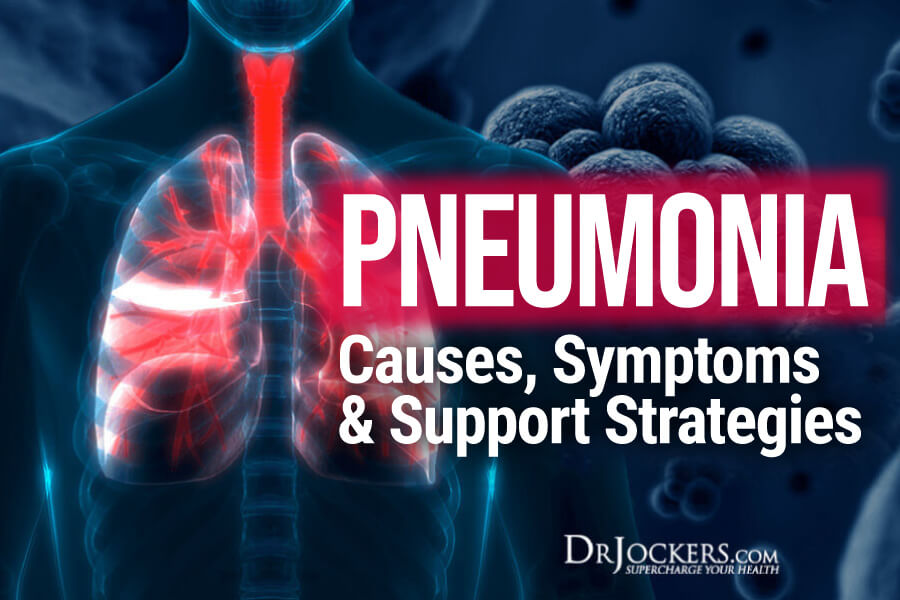 Pneumonia: Causes, Symptoms and Support Strategies
Pneumonia: Causes, Symptoms and Support Strategies
Nobody likes to be sick, especially not with pneumonia. Pneumonia is an infection that inflames the air sacs in your lungs caused by bacteria, viruses, or fungi. It causes coughs with mucus, difficulty breathing, and fever. If you are experiencing symptoms of pneumonia, it is important that you tackle it early on, as sometimes symptoms can become severe or even life-threatening. Fortunately, there are a number of things you can do to improve your health naturally.
In this article, you will learn what pneumonia is and its symptoms. You will understand some major factors that may cripple your immune system and increase your risk of pneumonia. I will also share my top support strategies to improve your immune health and overall wellness.
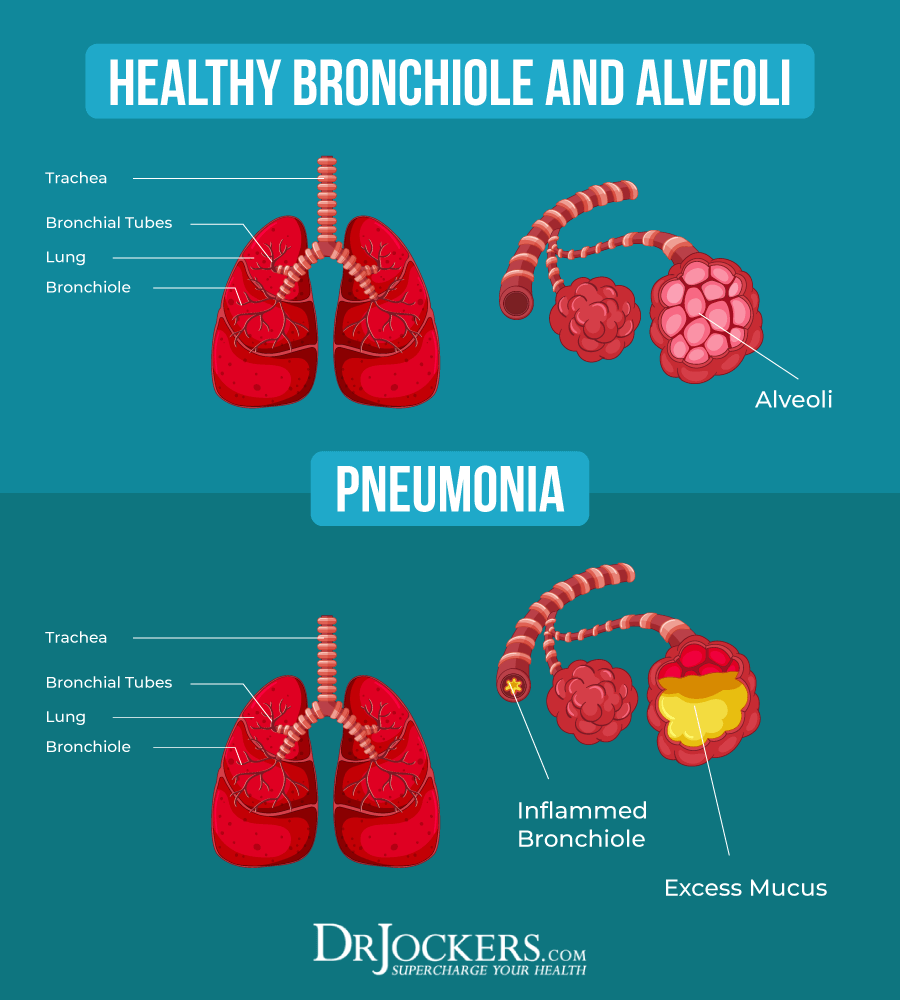
What Is Pneumonia
Pneumonia is an inflammation of the air sacs in one or both of your lungs caused by an infection. As opposed to bronchitis, which only impacts the bronchial tubes, pneumonia is an infection that has reached into and is causing damage to the lung tissue. If you have pneumonia, your air sacs fill up with pus or fluids causing coughing, difficulty breathing, chills, and fever.
Your symptoms may be only mild, severe, or even life-threatening. Pneumonia is especially dangerous in people older than 65, young children, infants, and anyone with a weakened immune system or serious health problems (1, 2).
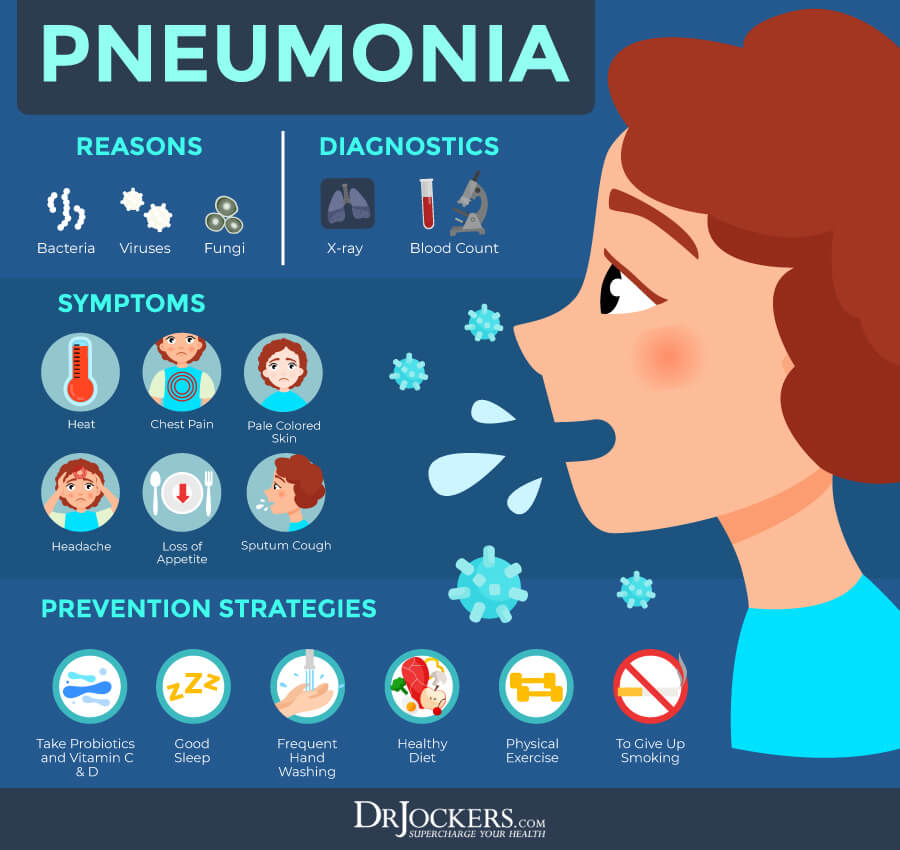
Major Symptoms of Pneumonia
Major symptoms of pneumonia may include:
- Fever
- Coughing, possible with phlegm (mucus)
- Chest pain that worsens when coughing or breathing
- Shortness of breath
- Sweating or chills
- Fatigue
- Loss of appetite
- Nausea or vomiting
- Headaches
Symptoms may be anywhere from mild to life-threatening. Children under 5 may experience wheezing or fast breathing. Infants may not show any common symptoms or may experience low energy, trouble drinking or eating, or vomiting. Older people may experience milder symptoms, lower body temperature, or confusion (1, 2).

Bacterial vs Viral Pneumonia
There are several types of pneumonia caused by different infectious agents (1, 2):
- Bacterial pneumonia: It is the most common form of pneumonia. It is often caused by the Streptococcus pneumonia bacteria, but may also be the result of Mycoplasma pneumonia, Haemophilus influenza, Legionella pneumophila, or other bacterial infection. If you have bacterial pneumonia, taking antibiotics may be necessary when natural solutions are not working. However, it is best to start out with natural solutions. Make sure to visit your healthcare provider to determine if you have viral or bacterial pneumonia and to see if antibiotics are necessary. If antibiotics are prescribed, you can still employ natural strategies to further aid your recovery.
- Viral pneumonia: This form is usually a milder type of pneumonia. It may be caused by the influenza (flu) virus, respiratory syncytial virus (RSV), or rhinoviruses (common cold). This type of pneumonia usually improves without any treatment within one to three weeks, however, natural remedies are helpful to speed up the course of the illness.
- Fungal pneumonia: This is the least common form that usually happens in people with weakened immune systems. It is caused by fungi from soil or bird droppings, including Pneumocystis jirovecii, Cryptococcus species, or Histoplasmosis species. If you have pneumonia, chances are, it’s either bacterial or viral, not fungal.

5 Lifestyle Activities That Cripple Your Immune System
To prevent pneumonia, it is critical to have a strong immune system that can protect your body from infections and complications. There are 5 main lifestyle activities that can cripple your immune system and make you more vulnerable to infections and pneumonia.
It is important to be aware of these things and be sure to do what you can to reduce or avoid these issues. You have to be proactive if you want to prevent getting the flu and possibly pneumonia.

Sugar and Your Immune System
I can’t say enough that sugar may be the number one enemy of your health and immune system. Sugar feeds bad bacteria in your gut increasing the risk of inflammation and disease. It feeds parasites to encourage the growth of abnormal tissue and cancerous growth. Sugar also strips your body of important immune-boosting nutrients, such as zinc, vitamin C, and glutathione. Sugar is not your friend (3, 4).
Back in the 1970s, a doctor named Dr. John Ely made an interesting link between sugar, vitamin C, and your immune system. He discovered the Glucose-Ascorbate-Antagonism (GAA) theory, which helped the world understand that glucose (sugar) and ascorbate (vitamin C) have a very similar chemical makeup. Why is that a problem? Both vitamin C and sugar depend on the pancreatic hormone, insulin, and its signaling to get into your cells.
Because of this, vitamin C and sugar end up competing with each other. If you eat too much sugar, it will restrict vitamin C from entering your cells. This means that your body needs to pump more insulin to get enough oxygen to your cells. This can be detrimental to your health.
Vitamin C is critical to handle oxidative stress. It helps to fight pathogens, such as bacteria, viruses, and other microorganisms in your body. If sugar prohibits vitamin C from supporting your body, your system weakens and becomes more vulnerable to illness and disease, hence increasing your risk of pneumonia as well (5, 6).

Chronic Dehydration
Proper hydration is absolutely essential for your immune system, nervous system, circulation, energy levels, all organ functions, and overall health. Chronic dehydration can lead to histamine access in your body. Histamine is a chemical that is involved with immune response in your body.
When you are dehydrated and your organs are not getting enough fluids, histamine levels will increase. This may also increase inflammation, allergies, immune system problems, digestive issues, headaches, and chronic pain. Dehydration can make you more vulnerable to illness and may slow your recovery from health issues (7).

Drinking Tap Water
Water is a basic human need that is critical for your immune system and overall health. While not drinking enough water is often the problem, people often forget about how critical it is to pay attention to the type of water you are drinking. You may not know this, but municipal water can be very toxic.
Sadly, it is loaded with invisible environmental chemicals, such as chlorine, DBP’s, arsenic, fluoride, and heavy metals. Needless to say, these toxins are very harmful to your immune system and overall health. Drinking clean water using a high-quality reverse osmosis system or high-quality mineral or spring water is critical if you want to create a strong immune system and achieve optimal health (8, 9, 10, 11).

Sleep Deprivation
Sleep is another one of your basic human needs. Why? It allows your body to rest, repair, and rejuvenate. Chronic sleep deprivation can be detrimental to your health. It may increase your body’s inflammatory processes, heightened stress response, and lower immune coordination.
This means that sleep deprivation makes your body more vulnerable to pneumonia as well. Getting 7 to 9 hours of quality sleep regularly is an absolute key to a healthy immune system. If you want to learn more about the importance of sleep and how to get better sleep, I recommend this article (11, 12, 13).

Staying Indoors
Too much time indoors can become a serious problem and detrimental to your health. Just think about it. Our ancestors spent most of their time outdoors, usually moving around.
Yet, in our modern world, most of us spend about 90 percent of our lives indoors, usually inactive. The problem is that too much time indoors increases your exposure to toxic indoor pollutants that may harm your immune system.
You are also missing ours on the benefits of vitamin D from the sun, electrons from the ground when walking or standing barefoot on the ground, and the fresh air. Spending too much time indoors may also increase your risk of low motivation and a sedentary lifestyle. Missing out on the benefits of the outdoors may weaken your immune system and make you more vulnerable to health issues (14).

12 Natural Support Strategies for Pneumonia Recovery
You don’t want pneumonia to slow you down, and you certainly don’t want your symptoms to get worse. There is a time and a place for medical intervention and if you have bacterial pneumonia a round of antibiotics may be necessary. Antibiotics won’t help support a viral based pneumonia and will most likely make the recovery even longer.
However, it is also important to do many other things beyond antibiotics to help influence a faster recovery. While the following strategies are not FDA-approved to prevent, mitigate, treat, or cure pneumonia they can help to improve your immune system and help your body to function better.

Eat Light and Hydrate Well
Whether you are healthy or sick, nutrition and hydration are key to your immune system health. If you are experiencing symptoms of pneumonia and want to recover quickly, it is critical that you nourish your body with healthy food. I recommend that you eat light. Don’t overburden your body with heavy foods or too much food.
Remove refined sugar, refined oils, deep-fried food, processed foods, junk food, artificial ingredients, and any heavy or large meals. Instead, eat hydrating greens, vegetables, low glycemic-index fruits, herbs, spices, fermented foods, and healthy fats. You may want to focus on a liquid-heavy diet consuming bone broth, soups, green smoothies, green juices, and herbal tea.
The general recommendation is to drink 8 to 10 glasses of water minimum a day. However, if you are dealing with pneumonia or any other illness, I recommend that you drink more. Make sure to drink clean water. I recommend that you use a high-quality reverse osmosis system that purifies your water by removing all the toxins.
If you are out and about, even if you are just going to a doctor’s appointment or a health food store to pick up some nourishing foods, I recommend that you carry a water bottle to help you stay hydrated at all times. I recommend using a stainless-steel bottle to avoid any toxic chemical residue from plastic bottles and avoid plastic waste.

8 Foods to Support Immune Health
Eating immune-boosting foods is critical for your pneumonia recovery. These foods are nutrient-dense, low in sugar, and rich in phytonutrient. They include greens, vegetables, herbs, spices, fermented foods, fruits, and healthy fats.
However, some foods have higher immune-boosting properties than others. If you want to recover from pneumonia quickly, it is important that you include these top 8 immune-supporting foods in your daily diet. I recommend that you eat at least 3 servings of each of these foods:
- Lemons and limes: Lemons and limes are abundant in vitamin C and antioxidants and are also beneficial for alkalizing and cleansing your body (15).
- Bone broth: Bone broth is very high in vitamins and minerals and particularly helpful for respiratory conditions (16, 17, 18).
- Garlic: Garlic is one of the best anti-inflammatory foods out there that supports your immune system and can effectively fight infections (19, 20).
- Onions: Just like garlic, onions are fantastic foods that help fight infection, boost your immune system, and reduce inflammation in your body (19, 20).
- Apple cider vinegar: Apple cider vinegar is full of disinfectant power against even the most resistant bacterial strains and viruses and offers antioxidant support (21, 22).
- Olive oil: Olive oil is high in monosaturated healthy fats which is excellent for your immune system (23, 24).
- Ginger: Ginger is a potent spice that helps to lower inflammation, improve your immune health, reduce sore throat, and lower pain (25).
- Mushrooms: Medicinal mushrooms have been used for centuries across cultures for immune-boosting benefits and anti-inflammatory properties (26, 27, 28).
To learn more about the benefits of these immune-boosting foods, read this article.
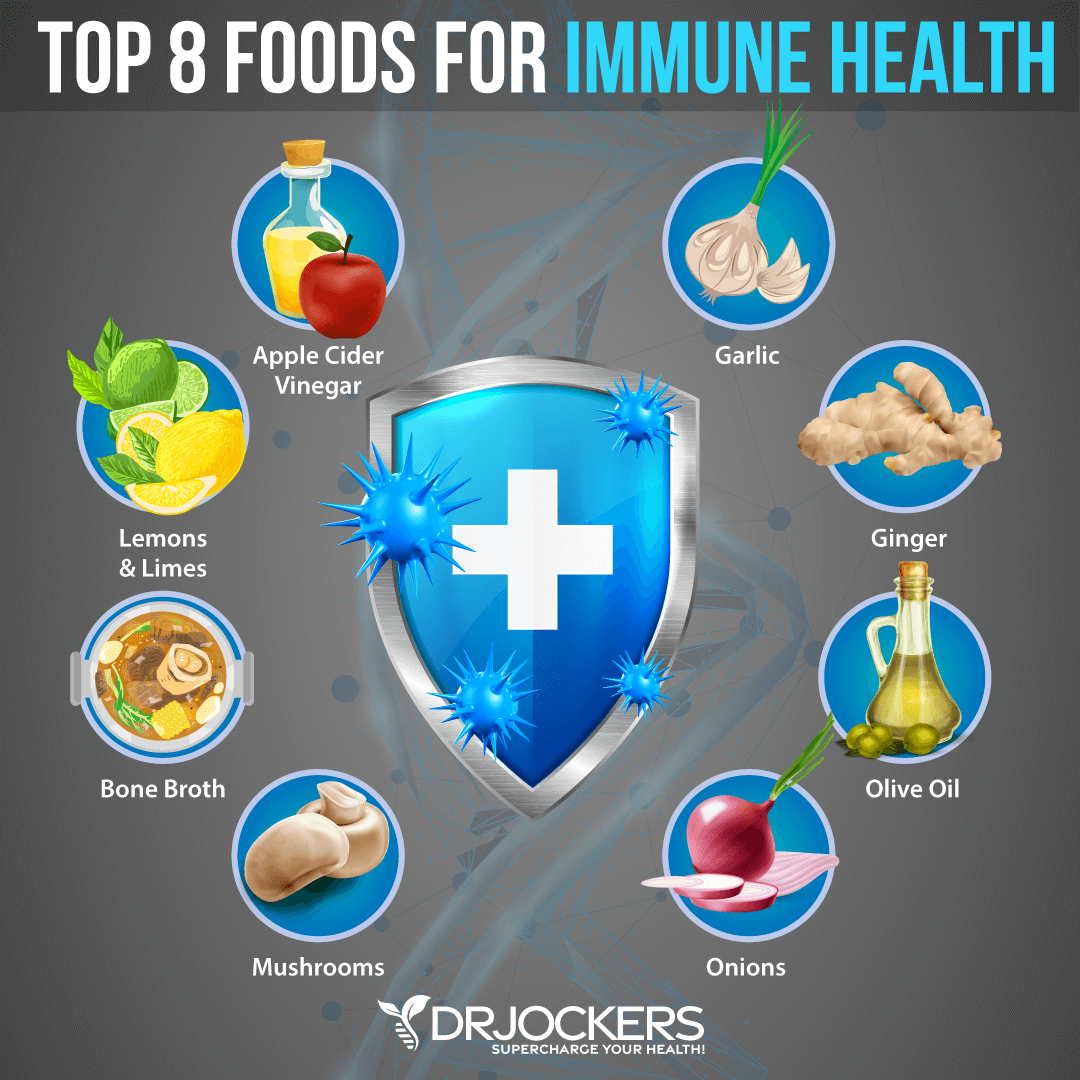
Good Sleep, Fresh Air & Light Movement
Good sleep, fresh air, and light movement are not only critical for a healthy immune system but are essential for your recovery from pneumonia. I recommend that you get 7 to 9 hours of sleep on a regular basis. However, while you are recovering from pneumonia, sleep is more critical.
Get as much sleep as you can and need it. Take naps if you need to. Rest as much as possible. Avoid sugar, caffeine, and heavy foods that may keep you awake. Use comfortable bedding and pillows.
Make sure to get some fresh air. If you live in a colder climate or you feel too sick, a walk may not be recommended. However, dress up warm enough and go outside for a few minutes, or air out your rooms for a little bit. If you can, go for a walk. If it’s warm enough, sit outside or do some grounding.
Get some light movement in. While heavy exercise is not recommended if you have pneumonia, you may benefit from some stretching, a short walk, or light yoga. Listen to your body and do as much as you can handle.
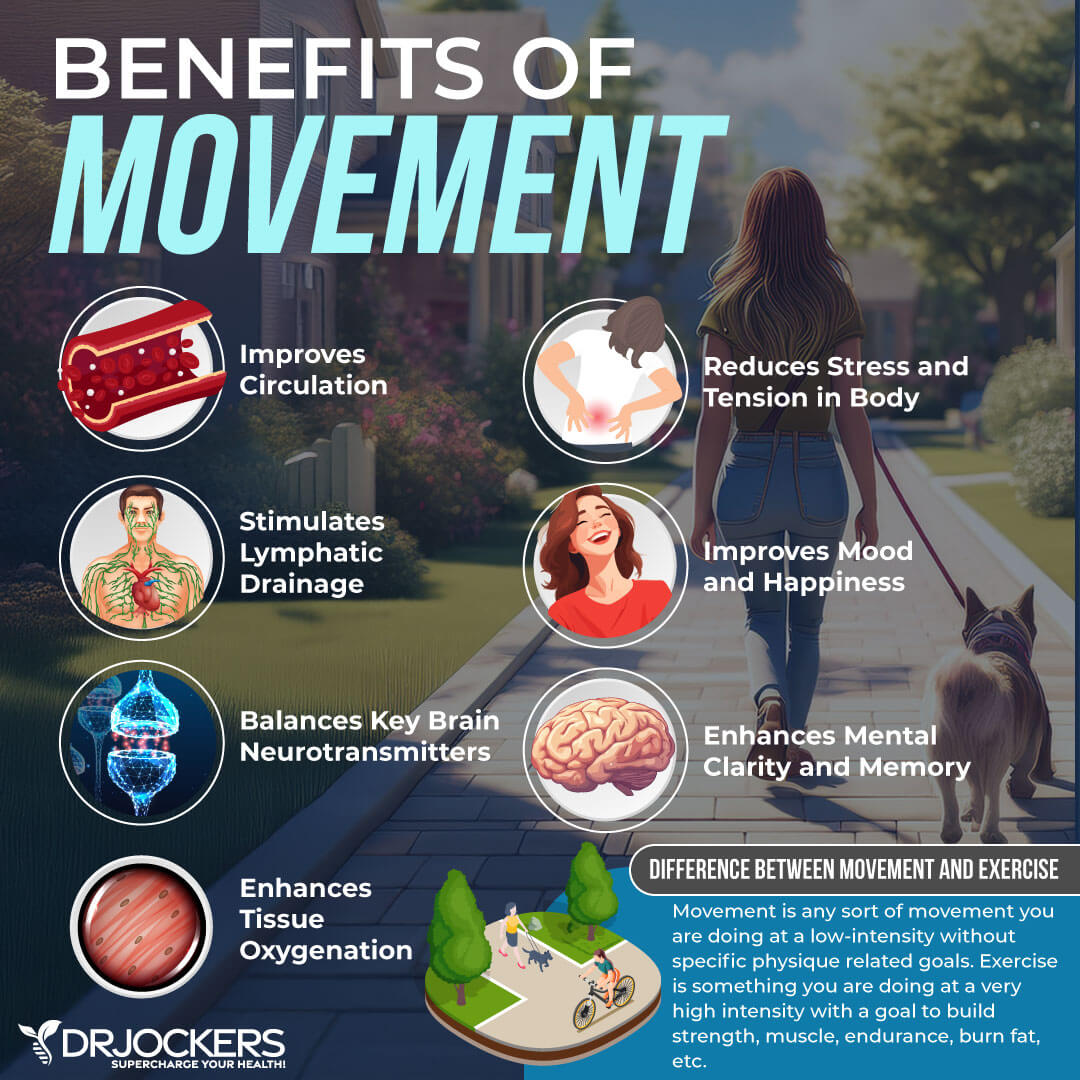
Use A Garlic Salve
To improve the symptoms of any respiratory condition, I recommend my homemade garlic salve. It is simple to make, and easy to use, yet it’s a great support for lung and immune health. Here is how you can make it:
Homemade Garlic Salve
You will need:
- 8 cloves garlic, peeled
- 1/3 cup coconut oil
- 10 drops lavender oil (it’s incredibly calming and soothing)
Blend these ingredients together in a blender or food processor until smooth and creamy. The garlic cloves should be completely blended.
How to use it:
- Rub it onto the soles of your feet. Apply generously. Put socks on to help hold the salve in place.
- Rub it on your chest.
- Repeat every 2 to 3 hours until your condition improves.
Drink Herbal Tea
Drinking herbal tea is incredibly helpful for breaking up mucus, soothing your cough, easing pain, boosting your immune system, reducing your pneumonia symptoms, and boosting recovery. One of my favorite teas, I recommend for immune and respiratory health is Echinacea tea.
The echinacea plant has been used for centuries for its medicinal properties to stimulate the immune system. This delicious tea reduces inflammation and pain while also fighting harmful pathogens that cause illness (29).
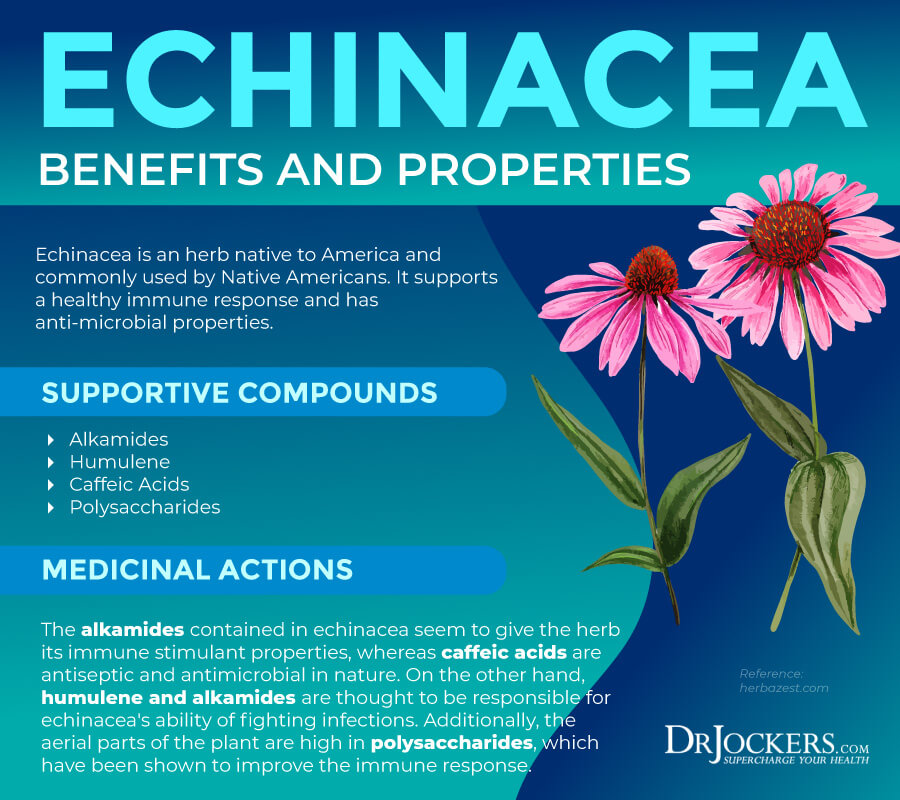
Diffuse Essential Oils
Essential oils have a number of health benefits. Diffusing certain essential oils, including eucalyptus, rosemary, peppermint, frankincense, oregano, thyme, geranium, cinnamon, nutmeg, bergamot, cypress, and tea tree oil may help to open up your airways, improve coughs, reduce mucus, clear your sinuses, and improve sore throat.
Essential oils are not for everyone. Some people may be sensitive to certain or all essential oils, especially when diffusing them. It is important that you start out with a smaller amount or better yet, try a small amount when not sick.
Pay attention to your reactions and your body’s messages. If your body says it’s okay, you may increase the amount. Use essential oils that you receive the most benefits from and enjoy the most (30).

Use a Specific Herbal Support Formula
Herbs have so many powerful benefits for your health. The most well studied herbs and compounds for natural respiratory support include lovage root, eucalyptus leaf, peppermint left, rosemary, lemon balm leaf, lungwort leaf, orange leaf, plantain leaf, chaparral leaf, elecampane root, lobelia flower, and peppermint essential oil.
Peppermint and rosemary contain rosmarinic acid which has been shown to block the production of pro-inflammatory chemicals called leukotrienes. Rosmarinic acids also encourage cells to produce key molecules that keep the airways open for easy breathing (31).
You can use these as herbal teas, essential oils, herbs in your food, and herbal supplements to encourage lung, sinus, and respiratory tract health.
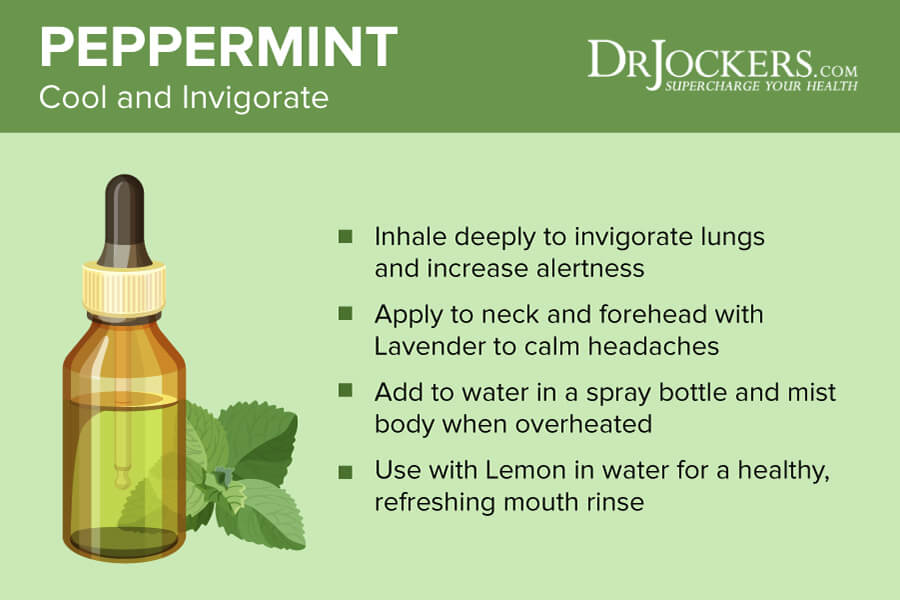
Use Elderberry & Astragalus
Elderberry and Astragalus are two amazing plants that I recommend for immune health. Research has shown they help improve immune function and support respiratory health (32, 33, 34).
Elderberry is nature’s richest source of quercetin, and this compound helps it act as an immunomodulator to help balance the immune system. One study examining the structures and the immunomodulating properties of the pectic polymers from elderberries has found that Sambucus elderberries contained immunomodulating polysaccharides and may benefit respiratory illness.
Another study examined the immune-modulating effects of astragalus root and elderberry fruit extracts in bone marrow-derived murine dendritic cells by measuring IFN-β and other cytokines with ELISA and RT-PCR tests.
Results suggest that both elderberry and astragalus increased L. acidophilus-induced IFN-β production while decreasing pro-inflammatory reaction to E. coli. These findings suggest that both elderberry and astragalus offer antiviral and immune-enhancing benefits.
Furthermore, a meta-analysis of randomized controlled trials of 180 participants on the effectiveness of black elderberry for respiratory issues has found that elderberry supplementation may substantially reduce upper respiratory symptoms and may be beneficial for cold and flu recovery (35, 36, 37).

Oil Pulling
Oil pulling may seem like an odd practice at first, but I promise you, it is incredibly beneficial for your immune system. It is an ancient Ayurvedic practice that involves swishing pure oil around the mouth.
This practice helps to draw toxins from your body, and as a result, it helps to reduce dental plaque, bacteria in the mouth, parasites, pain, and respiratory conditions. It’s a simple practice. Squish a tablespoon of coconut oil around your mouth for 20 minutes first thing in the morning then spit it out.
Brush your teeth after oil pulling. I recommend using a different toothbrush after oil pulling than you would for other practices for two reasons: the remaining oil on your teeth is full of toxins that you just ‘pulled out’ of your body and using toothbrushes with any oily residue may not be nice later on.
Oil pulling during your recovery may help you improve your pneumonia symptoms. Oil pulling daily may reduce the risk of future illness. To learn more about the benefits of oil pulling and how to do it, I recommend reading this article (38, 39, 40).

Use Colloidal or Nano Silver
Colloidal and nano silver are powerful antibacterial and antimicrobial agents. While your body can build up resistance to prescription antibiotics, it’s not the case when it comes to colloidal silver. This may be good news considering that according to the Centers for Disease Control and Prevention (CDC), there are over 2 million people who suffer from antibiotic-resistant infections in the US alone. (41)
Moreover, long-term use of antibiotics can damage your gut leading to inflammation and health problems. On the other hand, there is no evidence that colloidal or Nano silver interrupts your gut flora. In fact, it can actually disrupt the cell membranes and stop the reproduction of fungi, such as Candida, which is known to compromise the gut flora. (42)
According to a study published in the Journal of Alternative and Complementary Medicine, silver may be effective against both aerobic and anaerobic bacteria. Research has found that colloidal silver can permeate and damage bacterial cells. Further research suggests that by increasing oxidative stress in bacterial cells, colloidal silver may also be able to inhibit the growth of or kill bacteria. (43, 44, 45, 46, 47)
While there are no further studies on the subject, it is interesting to point out a case report of a twelve-year-old patient with cystic fibrosis. Colloidal silver supplementation effectively treated his Pseudomonas aeruginosa, which is a multi-drug-resistant bacteria that can lead to pneumonia. (48) While it is not FDA-approved to prevent, treat, or cure pneumonia, it can be very helpful.

Load Up on Vitamin C
You’ve heard about the benefits of vitamin C. When you were sick as a child, your mom probably gave you some oranges or orange juice along with her famous chicken soup for recovery. You may do the same with your own kids.
It is not some old wives’ tale. Research has actually shown that vitamin C is one of the most critical vitamins for your immune system and is very beneficial for lung and respiratory infections.
Vitamin C rich foods include lemon, lime, oranges, mandarins, grapefruits, guava, strawberries, papaya, pineapples, kiwi, sweet green pepper, broccoli, and Brussels sprouts. Along with eating a nutrient-dense diet with loads of vitamin C-rich foods, I recommend that you support your immune system with the help of a quality vitamin C supplement (49, 50).

Take Vitamin D and Zinc
When it comes to vitamins or minerals for immune system support, vitamin C usually takes first place and gets all the attention. However, vitamin D and zinc are just as important for your immune system and overall health. Despite them being so important, most people simply don’t get enough of either of them.
Sunshine is the best way to get enough vitamin D, however, our indoor lifestyle and in some places, cold climate and cloudy weather, make it practically impossible to meet all your requirements. Regularly taking a good quality vitamin D3 supplement and testing your 25-OH vitamin D3 levels a few times a year to ensure it is in the optimal 50-100 ng/mL range is recommended.
One of the best ways to get enough zinc is by eating zinc-rich foods, including grass-fed meats, organ meats, eggs, pumpkin seeds, wild-caught seafood, and grass-fed dairy. However, most people don’t eat enough zinc-rich foods, forget to supplement, and end up suffering from immune dysfunction. Make sure to load up on these high-zinc foods and consider a good quality zinc supplement as well.
Don’t wait until you get sick. Taking vitamin D and zinc daily is important for supporting your immune system, keeping inflammation under control, and improving your health. For more information on how to improve your health when you are sick, read this article (51, 52).

Inflammation Crushing Ebundle
The Inflammation Crushing Ebundle is designed to help you improve your brain, liver, immune system and discover the healing strategies, foods and recipes to burn fat, reduce inflammation and Thrive in Life!
As a doctor of natural medicine, I have spent the past 20 years studying the best healing strategies and worked with hundreds of coaching clients, helping them overcome chronic health conditions and optimize their overall health.
In our Inflammation Crushing Ebundle, I have put together my very best strategies to reduce inflammation and optimize your healing potential. Take a look at what you will get inside these valuable guides below!
Final Thoughts on Pneumonia
Pneumonia is an inflammation of the air sacs in your lungs caused by an infection. While sometimes symptoms, including coughing, difficulty breathing, and fever may be mild in some cases, they can also become severe or even life-threatening. Follow my tips and try natural support strategies to strengthen your immune system and improve your overall health.
At my clinic, we offer long-distance functional health coaching programs. For further support with your health goals, just reach out and our fantastic coaches are here to support your journey.
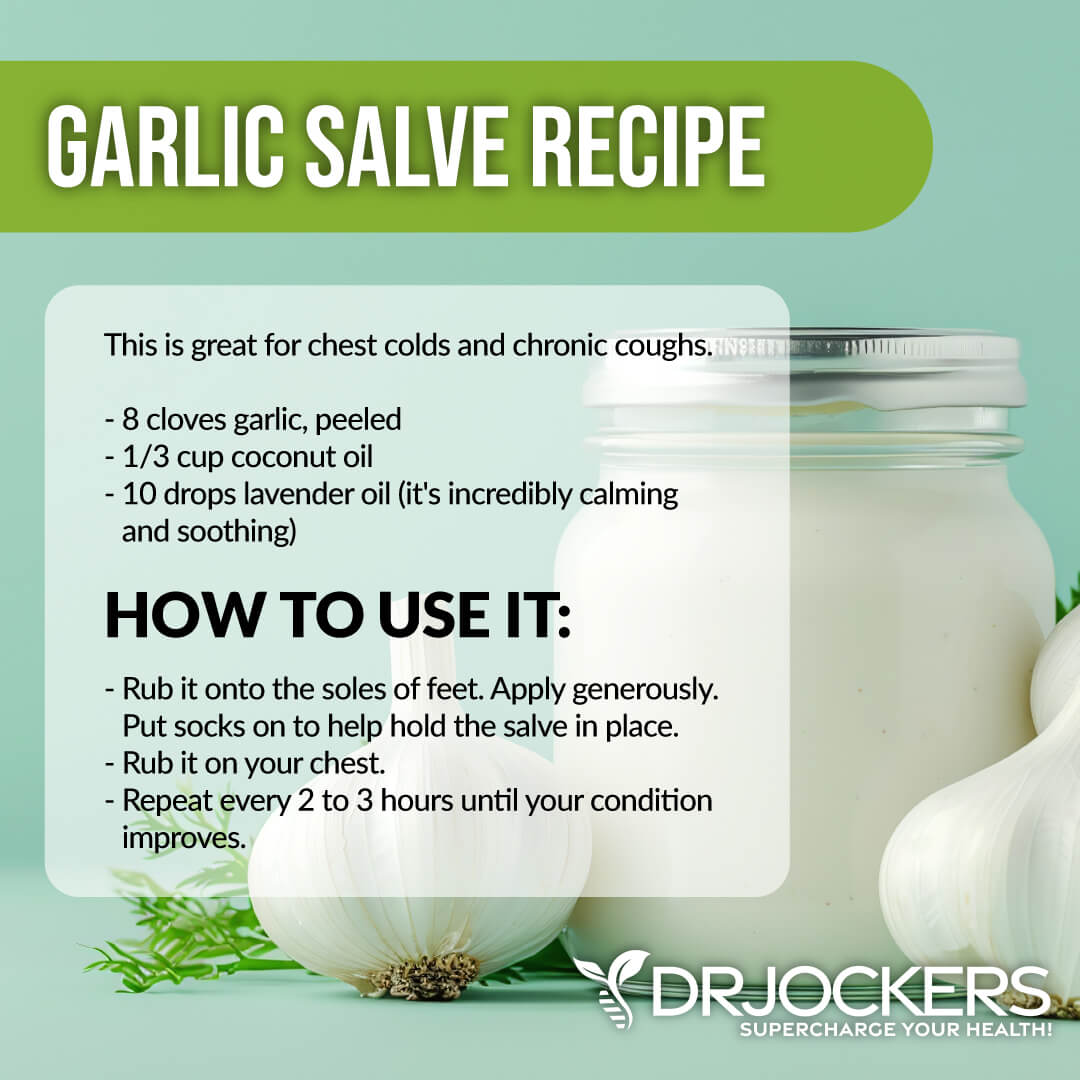





Well written article.
Thank you Angeline!
What would cause a 6 weeks old to get pneumonia?
Sorry to hear this! Most likely a bacterial infection. Perhaps mom had a vitamin D deficiency, dysbiosis or other issues. They may have mold issues in there home that would suppress the immune system. There could be a wide range of factors.
Does nebulizing H2O2 ever cause pneumonia?
No nebulizing H202 is safe.